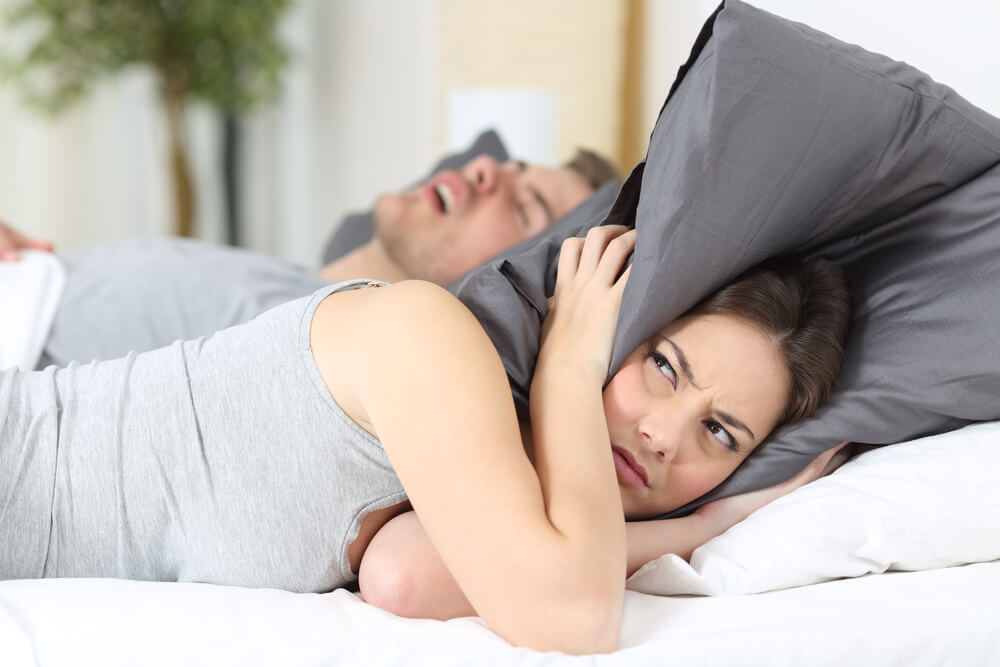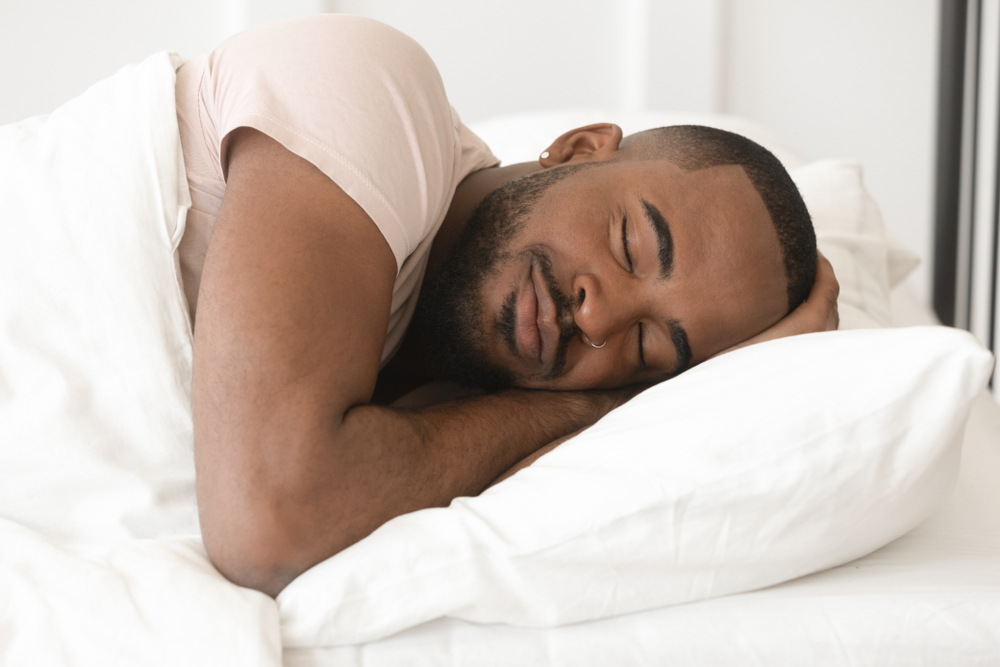Types of Sleep Apnea
in Silver Spring, MD
Discover What’s Disrupting Your Sound Sleep
Have you ever found yourself restless, tossing and turning through the night, only to wake up feeling more tired than when you went to bed? Or perhaps you’ve been startled awake by a loud, persistent snore echoing through your bedroom, unsure of what’s causing such a disturbance? If you’ve experienced these scenarios, you might be more familiar with sleep apnea than you realize.
Sleep apnea is a disorder that silently disrupts the serenity of our slumber, affecting millions of people worldwide. What makes this condition particularly intriguing, however, is that it comes in various forms, each with its unique characteristics, triggers, and effects. In this article, Dr. Alice Bassford at Silver Spring Sleep Solutions explains the different types of sleep apnea and how each affects your rest.
If you’re seeking sleep apnea treatment, contact our Silver Spring sleep dentist near you today at 301-593–5500.
What Is Sleep Apnea?
Sleep apnea is a common sleep disorder characterized by interruptions in breathing during sleep, leading to poor sleep quality and many health issues. There are different types of sleep apnea, each with its distinct features and causes.

The Different Kinds of Sleep Apnea
Obstructive Sleep Apnea (OSA)
Obstructive Sleep Apnea (OSA) is the most prevalent type of sleep apnea. It occurs when the muscles at the back of the throat relax excessively, causing an airway blockage. This obstruction leads to repeated pauses in breathing during sleep.
Those with OSA often snore loudly and may wake up gasping for air. The fragmented sleep caused by OSA can lead to excessive daytime sleepiness, difficulty concentrating, and even cardiovascular issues.
Central Sleep Apnea (CSA)
Central Sleep Apnea (CSA) is less common and differs from OSA in its underlying cause. Unlike OSA, where physical obstructions lead to breathing pauses, CSA is characterized by a failure of the brain to send proper signals to the muscles responsible for controlling breathing. This lack of communication between the brain and muscles can lead to pauses in breathing during sleep. CSA is often associated with certain medical conditions such as heart failure and stroke.
Complex Sleep Apnea Syndrome
Complex Sleep Apnea Syndrome, also known as Treatment-Emergent Central Sleep Apnea, is a condition that combines features of both OSA and CSA. Initially, those with this condition have OSA but develop central sleep apnea patterns upon receiving treatment. The exact reasons for this transition are still under research, and treatment approaches can vary based on individual cases.
Positional Sleep Apnea
Positional Sleep Apnea is a type of sleep apnea that primarily occurs when a person sleeps in a certain position, usually on their back. In this position, the tongue and soft palate are more likely to collapse and block the airway, leading to breathing interruptions. Changing sleep positions or using positional therapy devices can often alleviate this type of sleep apnea.
Nocturnal Hypoxemia
Nocturnal Hypoxemia is characterized by abnormally low oxygen levels in the blood during sleep. While not a standalone type of sleep apnea, it often accompanies other forms. Nocturnal Hypoxemia can have health implications, as the body’s vital organs and tissues require adequate oxygen levels for proper functioning.
Treating the Types of Sleep Apnea
At Silver Spring Sleep Solutions, Dr. Bassford works with sleep specialists to create effective sleep apnea treatments. We’ll guide you on the best ways to get a better night’s sleep and alleviate disruptive symptoms by providing CPAP-free sleep apnea solutions.
Treatment options for sleep apnea include:
- Lifestyle Modifications: Losing weight, avoiding alcohol and sedatives before bedtime, and sleeping on your side can help alleviate symptoms.
- Continuous Positive Airway Pressure (CPAP): This is a common initial treatment where a machine delivers a continuous stream of air through a mask to keep your airways open during sleep.
- Oral Appliances: These are custom mouthpieces worn at night that reposition the jaw and tongue to keep the airway open.
While CPAP solutions are generally prescribed first for sleep apnea, our Silver Spring dentist offers oral appliance alternatives that allow patients to ditch the noisy machine, bulky mask, and tangled hose. Schedule an appointment with our sleep dentist today to learn more about this CPAP-free sleep apnea solution.

Frequently Asked Questions
Are there any differences in symptoms between the types of sleep apnea?
While symptoms like excessive daytime sleepiness and snoring are common, CSA might exhibit more abrupt awakenings and shortness of breath, while OSA could result in gasping for air during sleep.
Can the treatment approach vary based on the type of sleep apnea?
Absolutely. Treatment plans are tailored to the type and severity of sleep apnea. OSA may require devices that address airway obstruction, while CSA management focuses on stabilizing respiratory control.
Why is medical evaluation crucial in managing sleep apnea types?
A precise diagnosis from a sleep specialist guides personalized treatment decisions. Accurate identification of the type and its underlying factors leads to effective, targeted interventions for improved sleep quality and overall health.
What distinguishes Obstructive Sleep Apnea (OSA) from other types of sleep apnea?
OSA involves the physical obstruction of the airway due to relaxed throat muscles during sleep. The resulting disrupted breathing patterns lead to frequent awakenings and loud snoring, requiring specialized treatments like CPAP therapy or oral appliances.
Discuss Your Sleep Apnea Symptoms with Dr. Bassford
Understanding the types of sleep apnea is crucial for effective diagnosis and treatment. Whether you’re dealing with obstructive, central, or a combination of sleep apnea types, seeking medical guidance is essential. By addressing sleep apnea, you can significantly improve your sleep quality, health, and quality of life.
Contact our Silver Spring dental office at (301) 593-5500 or fill out our online contact form. We’re excited to help new and returning patients from Silver Springs and surrounding areas, such as White Oak, Adelphi, and Kensington, MD.
PHONE
OFFICE
10301 Georgia Ave, Suite 207
Silver Spring, MD 20902
